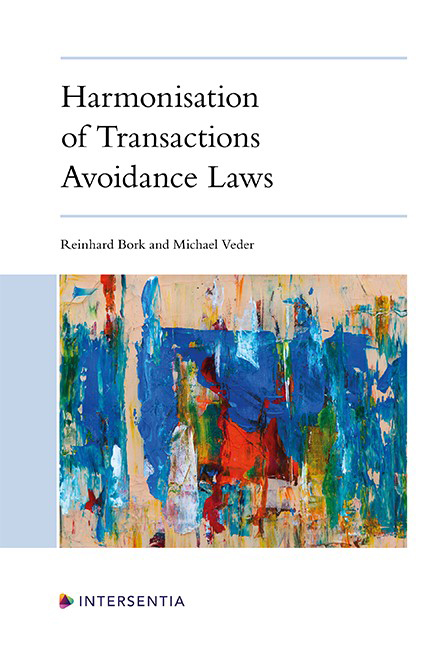Croatia
Published online by Cambridge University Press: 26 May 2022
Summary
A. INSOLVENCY LAW OF CROATIA
Croatian transactions avoidance law is generally part of bankruptcy law. Rules on transactions avoidance law are incorporated in Chapter IV, sec. 3. Art. 198 – 215 and Art. 62.a, para. 1 and 7 of the Croatian Bankruptcy Act.
The Croatian Bankruptcy Act regulates liquidation proceedings within the framework of the bankruptcy proceedings. It also regulates reorganisation (restructuring) proceedings through a bankruptcy plan within the bankruptcy proceedings as well as through a pre-bankruptcy agreement within the prebankruptcy proceedings. Despite this, the Croatian legislator did not want to use the title “Insolvency Act”for no reason other than established tradition.
B. SCOPE
Concerning personal scope, Croatian transactions avoidance law applies to all kinds of debtors, both legal entities and natural persons, irrespective of whether they are entrepreneurs or consumers. (See Art. 23 of the Consumer Bankruptcy Act, that foresees the appropriate application of the Bankruptcy Act in consumer bankruptcy proceedings, unless otherwise provided for herein.)
If bankruptcy proceedings are opened, the rules on transactions avoidance law shall be applied regardless of whether bankruptcy proceedings are liquidation proceedings or restructuring proceedings, and irrespective of whether bankruptcy proceedings are debtor-in-possession proceedings or not.
We will show in the following text how the implementation of the Model Law on transactions avoidance law (Model Law) would change the Croatian transactions avoidance law.
C. GENERAL PREREQUISITES
Croatian law contains a general rule on transaction avoidance in Art. 198, para. 1 SZ. (See the text of that rule, and the interpretation of it in Croatian literature as well as in court practice in Questionnaire, the answer to Question 9 in the Croatian National Report.) Avoidance grounds are stipulated in separate rules (Art. 199 – 206 SZ).
The general definition of voidable transactions includes active legal acts and forbearance (Art. 198, para. 2 SZ). This definition of transactions is not restricted to the performances of the debtor only but encompasses the behaviour of the opponent and third parties. Voidable transactions must be performed prior to the opening of bankruptcy proceedings, whereby a legal act shall be considered to have been performed when its legal effects have occurred (Art. 209, para. 1 SZ).
- Type
- Chapter
- Information
- Harmonisation of Transactions Avoidance Laws , pp. 311 - 324Publisher: IntersentiaPrint publication year: 2022

